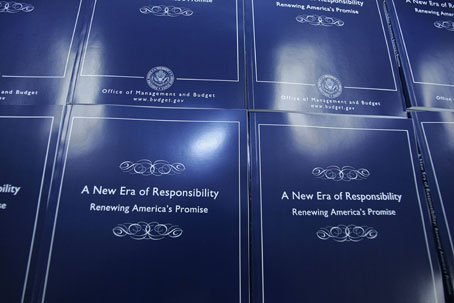
Over the last three months, the Credit Default Swap (CDS) rates for public bonds doubled in countries around the globe. This means that the market now requires between 60 and 80 basis points to cover the credit risk of those countries, almost twice as much as in December 2009. Is this happening in Greece? Not at all. This is the situation of the United States, Germany and the United Kingdom. In fact, most countries in the "developed world" are now way above the ratios of prudent debt management, and the market starts paying attention.
The champion in all categories is undoubtedly Japan, with about 200% of debt/GDP. Its public finance deficit has historically been at a record level, but with a zero interest rate policy, it did not hurt current spending as it did in other countries.
Governments all over the world now have to take serious measures and those that are reluctant to do so now will have tears in their eyes when they find it next to impossible to refinance their public debt. A recent study from the Bank of International Settlement (the Bank of the Central Banks) clearly indicates that the budget surplus that the countries will have to reach to go back to the 2007 levels, which are higher than 10% for Japan and the United Kingdom.
While there will be a lot of finger pointing focused on the support of financial institutions, these are not the most important cause of this deficit. The financial crisis required stimulus packages that were larger than normal to rescue consumers who were on the verge of bankruptcy. Furthermore, the situation started to evolve negatively from 2000 onwards in developed economies, while the emerging markets remained stable.
But the most serious question is in the market that still remains -- what about the United States? The U.S. administration is taking steps in the right direction with a freeze on additional expenses and a halt on big ticket items like lunar exploration. But there is no real reduction of the public debt ratio before 2014.
The real issue is that, while Governments and Central Banks have done the best they can to absorb the shock of the financial crisis, they could not anticipate or prevent it. The numbers that come, one by one, increase the worries that markets might ask for higher rates on public bonds, domestically but also abroad. This would have a snowball effect and challenge our foreign lenders.
This is particularly true for China whose national pride has been bruised after the Taiwan financing, the Google affair and the forthcoming visit of the Dalai Lama. Is it really useful for the US to antagonize its largest lender? If China would stop adding US debt instruments, let alone sell existing holdings, the U.S. Treasuries market would be in a complete turmoil. Recent reports indicate a shift of Chinese public investments away from the US. China sold $34 billion of US treasuries to $769 billion and is now below Japan, the primary foreign holder of US treasuries. China and other foreign countries will not endlessly continue to finance the US budget deficit.
Things have not yet reached a dramatic point. It gives us time to anticipate market reactions and reassure them. Let's use it wisely, and not rejoice in other countries' problems. Our turn will come, and if we are not careful, we might be facing huge interest rate increases across the board and threaten our modest recovery.
What we need now is wisdom and prudence. The White House and Congress might be well advised to take this risk into consideration. It might be a good topic for the next G-20 meeting.